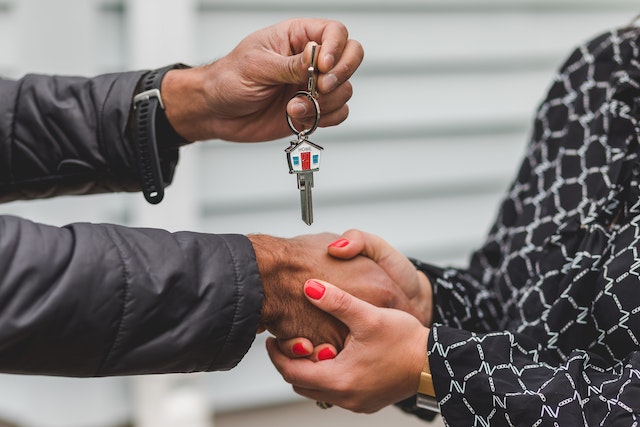
Many Philadelphians, like many Americans, aspire to own a home of their own. As a homeowner, you'll be able to establish a home base and develop equity in a place that's all yours—and it's likely to be one of the most significant investments of your life. However, not everyone should go out and buy a house. Sometimes, this substantial step it's not the best choice for them, so renting can be a better option. When it comes to renting, there are many benefits that you may not have previously considered. So should you rent or buy a home in Philadelphia? To help you make the best decision for you, we've consulted real estate and property management professionals and gathered valuable tips. Now let's get to work!
Should you rent or buy a home in Philadelphia?
Buying a home is a significant life decision, but is it the right one for you? Renting versus buying has advantages and disadvantages. Therefore, there isn't a simple answer. Personal finances play a significant role in your decision-making process. Also, your choice may come down to a combination of factors, such as how much freedom you want against how much security you need, your professional aspirations, and the desire to have a place to call home.
 Your real estate agent will have extensive knowledge of the local market and, based on your unique circumstances, will be able to give you the best
Your real estate agent will have extensive knowledge of the local market and, based on your unique circumstances, will be able to give you the best
To help you, here are the four most important things to consider when trying to weigh whether to rent or buy a home. After reading this post, you will better understand which way to go based on your unique situation.
#1 Consider your finances
When trying to figure out the best solution for your housing dilemma, the first thing is to analyze your finances. After all, only after you know how much you can spend will you be able to determine whether you can afford to buy a Philadelphia home or if you should stick to renting.
Be honest about your ability to pay for other up-front expenses, such as a down payment, repairs, moving costs, buying new furniture, etc. On the other hand, make a list of costs you would expect if you continued to rent. Setting a realistic budget and sticking to it will prevent you from potentially making a mistake you won't be able to fix easily. This is true regardless of whether you decide to rent or buy.
#2 Think about whether you see yourself living in Philadelphia long-term
The next factor to consider when deciding whether to rent or buy is your flexibility. To put it another way, do you want to be a part of your community long-term, or do you see yourself living in different places? It may make sense to buy a property if you're confident you'll stay in it for at least five years.
 If you don't plan on sticking around the same area for a while, perhaps buying a home is not a good option for you
If you don't plan on sticking around the same area for a while, perhaps buying a home is not a good option for you
On the other hand, renting might be a better choice if you don't plan on staying put for long. Let's imagine you're looking at a promotion at work, but it's located halfway across the nation. Selling your home and finding movers to hire in a hurry, all while preparing for a new job, can be tricky. Sure, experts can always jump in and help you with your residential move, but what about the possibility your home stays on the market for a long time or that you're forced to sell it for a much lower price?
#3 Consider the risks involved
Keep in mind that both renting and purchasing a property include certain risks. A property is an excellent investment, but there are certain downsides to consider. For example, if you decide to sell your house sooner than expected, you may not be able to recoup the closing costs or costs of renovations.
You shouldn't overlook the cost of home upkeep either. When costs such as performing maintenance on the HVAC system, fire alarms, landscaping, and similar add up, you'll have a significant amount deducted from your account. Maintaining a Philadelphia property may not be the best choice if you have other priorities, too. For example, if your work necessitates frequent travel.
Even though maintenance will be the last thing you'll have to worry about when renting, you won't be able to accumulate equity wealth in your home. On top of that, your monthly rent might get higher over time. However, you can do some research and see if you're eligible to participate in the resident benefits program or similar. It's a smart way to save some money while renting.
#4 Consider the general pros and cons of both options
Besides your circumstances, you should also consider the general pros and cons that come with both options. Let's start with renting. As we've mentioned, if you are a renter in Philadelphia, you'll have all the flexibility you need. You won't have to worry about repairs or closing costs, nor will your hair turn gray because of fluctuating housing market.
However, there are downsides to renting too. Besides not building equity, you won't be able to personalize any property you lease and make it truly your own. Also, you never know if your landlord will suddenly decide to sell and discontinue renting out the place.
 Weighing in on a difficult decision always consists of listing the pros and cons of each option.
Weighing in on a difficult decision always consists of listing the pros and cons of each option.
When it comes to buying a home, not only will you accumulate equity, but you might also be in a position to earn significant profits because, over time, the value of your home may rise. Owning a home also means customizing it exactly how you want to. And if that's not enough, the entire buying process can be pretty straightforward. You can participate in the VIP buyers' program and ensure you get your dream Philadelphia home in the quickest time possible and under the best terms.
However, there are still downsides you shouldn't forget, such as potentially astronomical closing fees. Owning a home comes with non-financial responsibilities such as regular maintenance. On the other hand, if your life circumstances change and you're forced to sell your home quickly, you can lose a significant portion of what you've invested.
So will you rent or buy a home in Philadelphia?
Deciding whether to rent or buy a home in Philadelphia isn't always easy. In the long run, the answer may alter depending on your circumstances and financial situation. Regardless of your choice, you must reach out to Philadelphia's real estate and property management professionals. They will be able to help you make the most of your decision no matter which way you decide to go. Remember, it's all about finding a solution that best fits your lifestyle and your financial situation.
